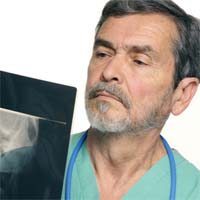Can Robotics Make Mesothelioma Surgery Safer?
A Chandler, Arizona man is recovering after becoming the second person in the world to undergo robotic surgery for mesothelioma. Carlos Tarazon, a 67-year-old former construction worker, was diagnosed with malignant pleural mesothelioma after spending more than 20 years in the construction industry. He had exhausted his treatment options when he was referred to University of Arizona Medical Center thoracic surgeon Farid Gharagozloo, MD, who elected to perform robotic-assisted extrapleural pneumonectomy (EPP). Gharagozloo had performed the world’s first robotic EPP just days before. Pleural mesothelioma invades organ membranes, the chest well, and, often, the lungs. EPP involves removing not only the diseased lung lining, but also the lung itself, portions of the chest wall, the membrane around the heart, and all…









